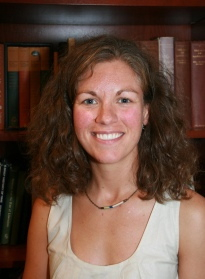Select an item by clicking its checkbox
It’s week nine here and this is my seventh post for the Center’s blog on teaching. We’ve reached the point where I’d like to take you out for coffee and find out how it’s going. I’d love to hear about the challenges you’re ...
On Monday, I told the students that for the first time since I started teaching I was blown away by the entire class’s projects. Their podcasts are fantastic, and you can listen to them here. I’m tempted to keep gushing. Instead let’s think through some reflections on ...
“If I wanted to write, I would have taken an English class.” – Anonymous in my intro course Looking back I’ll admit that it was more last straw than “Aha!” In fact, I’m sure there were times when analogous thoughts passed through my mind as I read students’ work. ...
In her introduction to Animals in the Four Worlds: Sculptures from India (1989), Wendy Doniger observes that animals and gods inhabit the borderlands of human communities, and as I mention in a piece for Religious Studies News, this notion frames my course. My students and I are investigating how humans define ...
“Timeliness is next to cleanliness and godliness; we don’t want to waste a minute. Plus, I’ve been looking forward to this moment since at least January, and it was hard to sleep a week ago.” That’s how we began. Welcome to this crazy class. I started imagining ...
